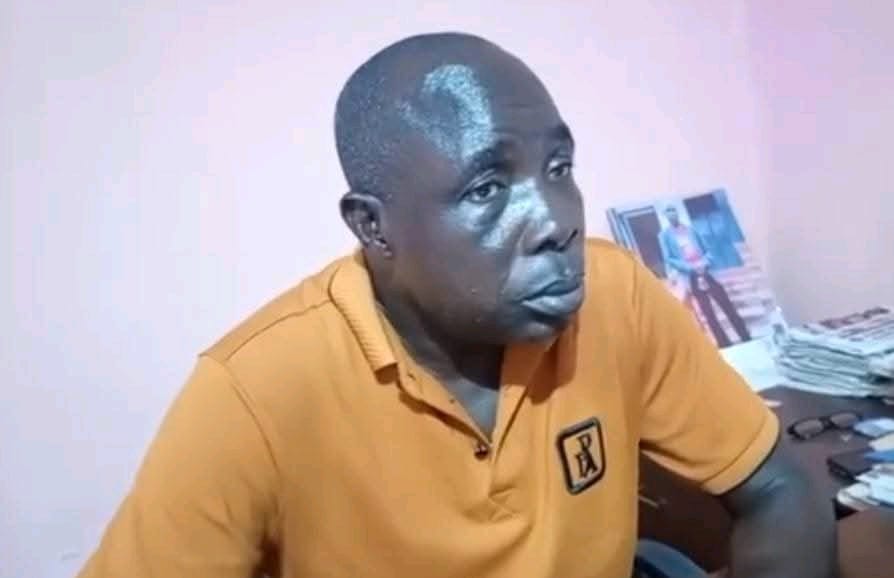Captain Jerry Kerkulah Kollie, a prominent voice for Liberian war veterans and former political candidate, has issued a poignant call for national recognition of the soldiers who perished during Liberia’s devastating 14-year civil war. Kollie, advocating for a state funeral to honor these fallen soldiers, emphasizes the profound symbolic importance of such a gesture, not only for the veterans and their families but also for the nation’s ongoing journey toward healing and reconciliation. He argues that these individuals, irrespective of their wartime affiliations, deserve recognition for their service and sacrifice, representing a shared national tragedy that transcends the political divisions of the conflict. Kollie’s appeal underscores a crucial element of post-conflict reconciliation: the need to acknowledge and honor the human cost of war, extending beyond civilian casualties to encompass those who bore arms.
Kollie’s call for a state funeral, made in conjunction with a coalition of former soldiers under the banner “Killed in Action (KIA),” carries a sense of urgency, marked by a November 29, 2025 deadline for the government’s response. The group’s threat of a large-scale protest in Monrovia if their demands are unmet highlights their frustration with what they perceive as decades of official neglect and silence surrounding the fate of their fallen comrades. This demand comes on the heels of a significant national event: President Joseph Nyuma Boakai’s historic apology to victims and survivors of the civil war. While the apology was lauded as a crucial step toward national healing, Kollie and his supporters contend that concrete actions, particularly honoring the fallen soldiers, are necessary to demonstrate the sincerity and depth of the government’s commitment to reconciliation.
President Boakai’s apology, delivered during the launch of the National Healing, Reconciliation, and Unity Program, represents a watershed moment in Liberia’s post-conflict recovery. His acknowledgment of the state’s failure to protect its citizens during the war, and his expression of remorse to victims and their families, signaled a willingness to confront the painful legacy of the conflict. Boakai’s commitment to implement recommendations from the Truth and Reconciliation Commission, support memorial initiatives, and promote inclusivity for marginalized communities further solidified the significance of his apology. This gesture, while widely praised, underscores the complex and multifaceted nature of post-conflict reconciliation, highlighting the need to address the varied experiences and perspectives of all those affected by the war.
The juxtaposition of President Boakai’s apology and Captain Kollie’s demand for a state funeral creates a compelling narrative of Liberia’s ongoing struggle with its past. While the apology addresses the broader societal need for acknowledgment and accountability, Kollie’s appeal focuses on a specific group—the fallen soldiers—who, he argues, have been overlooked in the national narrative of healing and reconciliation. This tension between broader societal healing and addressing specific grievances underscores the challenges inherent in navigating post-conflict societies, requiring a delicate balance between acknowledging collective trauma and recognizing individual experiences of loss and sacrifice.
Kollie’s insistence that a state funeral for the fallen soldiers is not merely symbolic but a practical necessity for genuine national healing further complicates the issue. He asserts that honoring these individuals is not about glorifying war or condoning violence, but about recognizing the human cost of conflict and acknowledging the shared national tragedy. By including these fallen soldiers in the national narrative of reconciliation, Kollie argues, Liberia can move towards a more complete and inclusive healing process. This perspective challenges the traditional narrative of victimhood and perpetration, highlighting the complexities of wartime experiences and the need for more nuanced approaches to reconciliation.
The government’s response to Captain Kollie’s demand will be a critical test of President Boakai’s stated commitment to post-war justice and reconciliation. Navigating the delicate balance between honoring combatants and respecting the rights and memories of victims requires a careful and considered approach. The looming deadline for the threatened protest adds further pressure, potentially escalating tensions if the issue remains unresolved. The nation watches closely as this situation unfolds, recognizing its potential to either advance the arduous journey toward reconciliation or become a new source of national division. The government’s handling of this sensitive issue will undoubtedly shape the future of Liberia’s post-conflict recovery and its ability to build a more inclusive and peaceful future.


